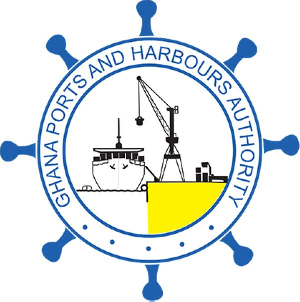Mr Kizito Ballans, Chief Director, Ministry of Employment and Labour Relations (MELR), has called on all stakeholders in the fight against child labour to join the implementation of Child Labour Free Zone (CLFZ) in Ghana.
He said the task to end all forms of child labour was a daunting one because of the socio-economic factors in many communities.
However, when the fight is won, it would build on the nation’s gains in the fight against child labour.
He said this at a day’s National stakeholder’s workshop on a study to test the protocols and guidelines towards the establishment of the CLFZ in the country.
The workshop was on the theme: “Establishing a robust knowledge-base for implementation of Child Labour Free Zone in Ghana.”
He said the objective of the creation of CLFZ was to strengthen government effort to uphold the Constitutional provision on the fundamental rights of children in Ghana to be protected from work that constitutes a threat to their health, education and development.
“It also seeks to provide a common standard by which all stakeholders can measure the impact of all efforts by government and non-government agencies towards the elimination of child labour in the country,” he said.
He said the Ministry in collaboration with other National Department and Agencies and Development partners have put in the effort to eliminate child labour by the operationalization of the National Plan of Action Phase II (NPA 2), adding that to do more in the fight, the CLFZ protocols and guidelines were developed to ensure the total development of children.
“The concept is to systematically remove children away from child labour and reintegrate them into formal, full-time schools,” he added.
Mr Araki Yasumichi, Chief Representative, Japan International Cooperation Agency (JICA), Ghana Office, said the launch of the guidelines and protocols for the creation of CLFZ in Ghana at Atwima Mponua District in the Ashanti Region in February 2020 was a monumental mile for their partnership with the MELR in the elimination of worse forms of child labour in the country.
He assured of JICA’s continuous support and commitment to ensure that Target 8.7 of the Global Sustainable Development Goals (SDGs) of eliminating child labour was achieved.
Mr Emmanuel Kwame Mensah, National Consultant, Child labour Unit (CLU),MELR said according to statistics gathered from the Ghana Statistical Service, published in 2014, about 704,212 children within the ages of eight to 11 formed 37.2 per cent of children involved in child labour in the country.
He said children from ages 15 to 17, who were classified as legally employable children were about 411,562 at 23.9 per cent, adding that these figures were disturbing and that government should create opportunities to give such class of children decent works.
He said most of these figures were recorded from the Eastern, Ashanti and Brong Ahafo Regions which were predominantly farming communities.
Madam Elizabeth Akanbombire, Head Child Labour Unit, Labour Department, MELR said although the challenge of child labour was a global one, the figures in Africa were continually on the rise.
She said effective and efficient reporting, robust implementation of laws in the fight, sensitization and capacity building, scale-up of social intervention projects to reach endemic areas, field visits, partnerships, amongst others would help to eliminate child labour in the country.
“Our contribution and commitment are needed to wholly protect these children from such abuse,” she said.
Madam Yuka Iwatsuki and Madam Tomoko Shiroki of Action against Child Exploitation (ACE) and Members JICA Project, joining virtually, shed more light on the CLFZ for stakeholders to have a better understanding of the guidelines and the policy.
Madam Tomoko said the implementation would help develop the assessment tools for measuring CLFZ in Ghana and beyond.
Business News of Saturday, 30 January 2021
Source: GNA













